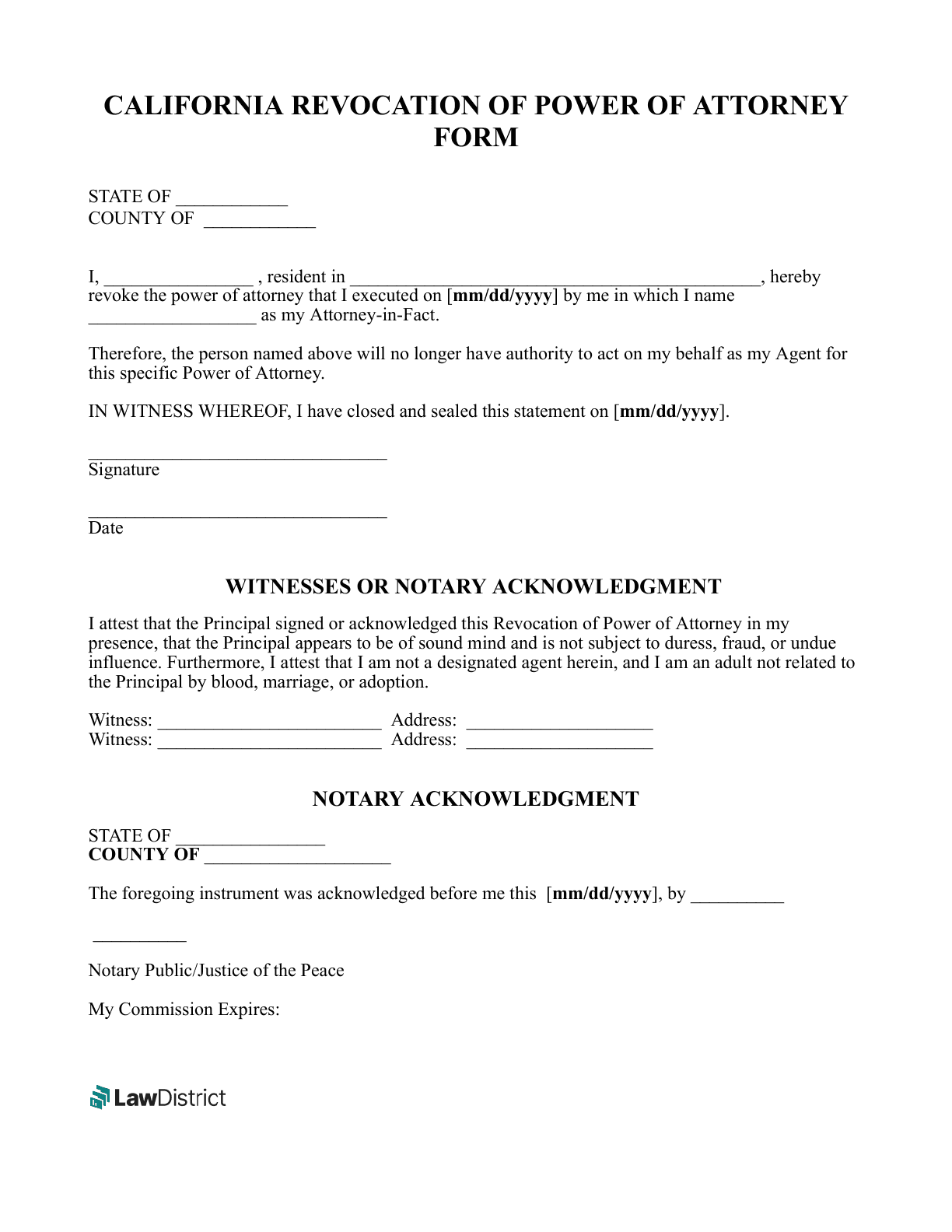Free California Power of Attorney Revocation Form
Revoking a Power of Attorney in California follows a straightforward process. However, there are a number of California state legal standards that you need to follow for the revocation to be recognized.

POA Revocation Form Legal Standards in California
California law does not require the revocation to be in a specific format. However, it must contain the following elements to be enforceable:
- Be in writing, dated, and signed by the principal.
- Clearly identify the original Power of Attorney being revoked (by date and agent’s name).
- Be delivered to the agent and to any institutions that relied on the original POA (banks, hospitals, real estate offices, etc.).
You can download a California-specific Power of Attorney Revocation form from this website.
In California, the agent’s authority continues until they receive actual notice of the revocation.
Many principals choose to send the revocation form via certified mail or hand-deliver it to the other parties. This helps guarantee the documentation of receipt.
Legal Authority and Mental Capacity
A Power of Attorney can be revoked at any time by the principal, provided they are mentally competent. This is explained under California Probate Code §4150–§4155.
The principal must be able to fully understand the nature and consequences of the revocation.
A POA cannot be revoked by the principal if they’re deemed incapacitated. This is often due to a medical diagnosis. In certain cases, the court may decide to step in.
Notarization and Recording Requirements in California
Notarization is not required under California law for revocation to be valid, but it’s strongly advised. This is especially true if the original POA was notarized.
Power of Attorneys are often recorded at with the county recorder in real estate transactions. The revocation should be recorded at the same office. This can help prevent any unauthorized actions. It also provides public notice that the POA is no longer in effect.